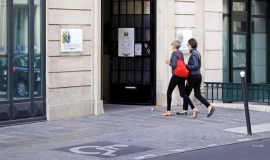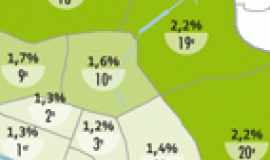Created in 2008 by the Paris City Council, it is co-run by Dases, MDPH and Apur. Twenty or so partners provide information for a statistical database. The Paris Observatory of Disabled People -OPH- was born of numerous key players’ shared acknowledgement of the difficulty to gather statistics and consequently the difficulty to monitor actions, to assess the needs of disabled people and to put in place suitable compensating tools.

Missions
The observatory’s aim is to be more knowledgable about disabled people and their environment, in order to provide public authorities and professionals the necessary awareness for making decisions.
To achieve this, it has first to organise the most efficient way of sharing information, facilitating access and the setting up of monitoring the main statistical indicators, notably by bringing together and pooling existing statistical data in a reliable and shared database. The observatory’s role is also to produce or commission thematic studies and analyses and to encourage interaction with partner associations.
The information gathered in the database is structured into seven chapters:
- Knowledge of the public
- Medico-social accompaniment and offer
- Transport and mobility
- Access to housing
- Access to education
- Access to jobs and training
- Access to culture, leisure activities and sport
A pilot tool for public policies
The observatory complies with the objectives of the 11 February 2005 Law for disabled people’s equal rights and opportunities, participation and citizenship and the (2017-2021) master plan for the autonomy and participation of disabled people in Paris.
The strategy called “Disabled, Inclusion, Universal Accessibility” of the current plan has three priority actions: to make the city accessible on all levels, to encourage accompanied inclusion and to propose solutions that are adapted to everybody in particular those with the most complex situations.



